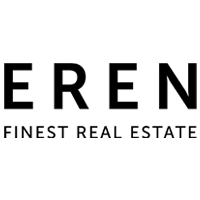Tax on rental value: everything you need to know about this tax and its (possible) future abolition
Reading time — 6 minutes

Do you live in the house or flat you own? If so, you are liable for tax on the rental value, calculated on the basis of the theoretical income you could earn from renting out your home. This is a special feature of Switzerland, but not for much longer: the National Council and the Council of States have jointly decided to abolish this tax. This decision could be applied from 2024. What is rental value and how is it calculated? What impact will its disappearance have on property owners? FGP Swiss & Alps takes stock.
What is rental value?
Rental value refers to the notional income from owner-occupied residential property. This income is declared to the Swiss tax authorities and taken into account when calculating tax. In other words, Swiss property owners pay tax on the theoretical rental income they could earn if they offered their property for rent, rather than occupying it themselves.
Tax deductions to mitigate the impact of rental value
As far as the authorities are concerned, the rental value is regarded as income in kind, and not as a sum of money actually obtained by the owners. From a tax point of view, by occupying your own property, you generate income equivalent to the rent you could have earned from it.
In return for the tax on the rental value, you can deduct a number of expenses relating to the property from your taxable income:
- Mortgage interest.
- Maintenance costs, including administration costs and insurance premiums.
- Renovation and/or repair costs, provided that the work is intended to preserve the value of the property and not to increase it.
The underlying idea is to promote a form of tax equality between landlords and tenants, since the latter cannot deduct their rent from their taxable income. However, even if the tax on rental value is an additional tax burden, many landlords manage to offset it, given the deductions available. Particularly if they have a high level of debt and/or high maintenance costs.
How is rental value tax calculated?
Rental value tax is calculated on the basis of the theoretical rent that would be paid by the tenant of the property. This value is determined by the cantonal tax authorities, who take into account criteria such as location, year and standard of construction, and living space. They estimate the value of the property (on site and by comparing it with equivalent properties) and take into account the average level of rents on the market.
The method of calculation varies greatly from canton to canton, but overall, the value used corresponds to around 60 or 70% of the theoretical rental income. In the canton of Vaud, for example, it is 65% of the statistical value. For older properties, a reduction of up to 30% may apply in addition. Tax on the rental value is then calculated on the basis of the owner’s taxable income.
An example of calculating tax on rental value
Here is an example of a calculation for a property with a market value of CHF 1,250,000 in the canton of Vaud, for a couple with a taxable income of CHF 180,000:
- Mortgage amount: CHF 1,000,000.
- Theoretical rental value for a comparable property: CHF 3,450 per month, or CHF 41,400 over one year.
- Rental value taken into account by the canton (65%): CHF 26,910.
- Mortgage interest rate to be deducted from this value (2.5%) : – CHF 25,000.
- Maintenance costs to be deducted (20% of rental value) : – CHF 5,382.
- Rental value following tax deductions: – CHF 3,472.
- Taxable income of the owner couple: CHF 180,000.
- Taxable income including rental value: CHF 176,528.
In this example, the deductions exceed the rental value of the property, and the owners manage to reduce their taxable amount. Rental value tax is therefore in their favour.
What should I do if the authorities have overestimated the rental value?
You find that the rental value set by the cantonal tax authorities is too high and does not reflect reality. This can happen if, for example, the size of the plot of land taken into account for the estimate is wrong, or because of a misunderstanding about the location. In this case, you can contact the tax authorities and exercise your right of appeal.
The abolition of rental value: a hot political debate
The taxation of the rental value of owner-occupied residential property is unique to Switzerland: few other countries apply it. Introduced briefly during the First World War as an extraordinary tax, own rental value was introduced in 1934 by emergency law as a federal crisis levy, with the aim of helping to consolidate the federal budget. It was then incorporated into ordinary law in 1958, with the consent of the cantons and the population.
As a result, the rental value tax is firmly anchored in Swiss law and practice. However, the idea of abolishing it – a snake in the web of federal politics for the last twenty years or so – is well on the way: at the end of 2023, the Swiss National Council and Council of States agreed that it would soon be abolished. Rental value will therefore be abolished for both primary and secondary residences (a point of difference between the National Council and the Council of States until then).
In return, and to compensate for this abolition, it will no longer be possible to deduct maintenance costs, with the exception of restoration work on historic monuments. At the same time, the deduction of passive interest will be severely restricted, set at 40% of the taxable yield on assets. Only new owners will be entitled to special treatment, with the possibility of deducting interest liabilities up to a maximum of CHF 5,000 per taxpayer (CHF 10,000 for spouses) in the first year. Thereafter, the maximum deduction will be reduced by 10% per year.
What will be the consequences of abolishing rental values?
Given the abolition of the deductibility of maintenance costs, the benefits of abolishing tax on rental value depend very much on the individual case. This will depend on the value of the property, the interest payable and the costs incurred.
Who will benefit from the abolition of rental values?
For homeowners who have paid off their mortgages and whose maintenance costs are low, due to lower deduction possibilities. These taxpayers are at a disadvantage because they pay the most tax on rental value: this also applies to pensioners.
For whom is this removal an inconvenience?
For homeowners who pay high mortgage interest and have high maintenance costs (for example, when renovating their home). Abolishing the deductibility of these costs will have the effect of increasing the amount of their income tax.
The effects of a change of model
It is important to understand that the model of tax on rental value, offset by tax deductions, benefits homeowners with a high level of debt: those who have taken out a mortgage and are paying high interest rates over a long period. A change in the system would instead favour taxpayers who have already paid off a major part of their home ownership, while encouraging homeowners to reduce their debt and pay off their mortgages in view of the limited tax benefits.
The abolition of rental values put to the test in the referendum
For many experts, the abolition of deductible maintenance costs, together with the abolition of tax on rental value, is the black mark against the draft revision approved by Parliament. This is despite the fact that these measures were taken to level the playing field between landlords and tenants.
This deduction mechanism is at the heart of the debate, as it is seen as a key factor in maintaining homes in good condition and encouraging energy renovation. Without this deductibility, homeowners run the risk of reducing their maintenance expenditure and putting off any work to improve energy performance.
The public will be asked to vote on the subject before the proposal is adopted and implemented. However, given that maintenance costs are not deductible, the Swiss people could refuse to abolish the tax on rental value – as they have done in the past.


